German Lesson: Fußball Fieber
 Sunday, July 17, 2011 at 13:30
Sunday, July 17, 2011 at 13:30 Herr J and I have definitely caught the football fever that sweeps Germany 3 out of every 4 years (World Cup, Women's World Cup, European Cup, then a sad, sad summer with no football).
So we thought we'd put together some of the more important German terms that you need to know to follow football (men's or women's), along with some of our photos from Sweden-North Korea, Sweden-Australia, and Sweden-Japan games in Augsburg and Frankfurt. (No, it isn't that we are huge Sweden fans...the Quarterfinal (Viertelfinale) and Semi-final (Halbfinale) matches just ended up that way).
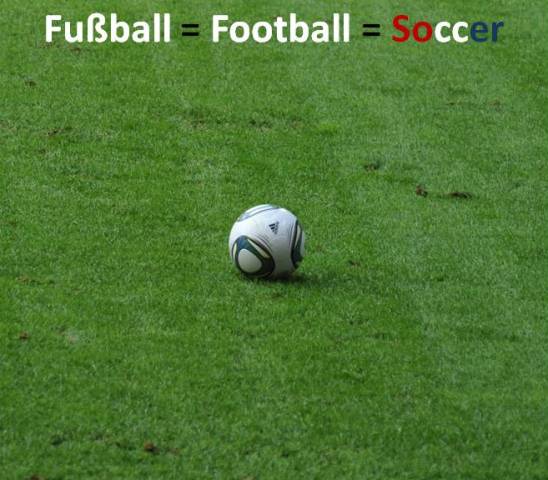
Also known collectively as the Ampelkarte (Stoplight Cards):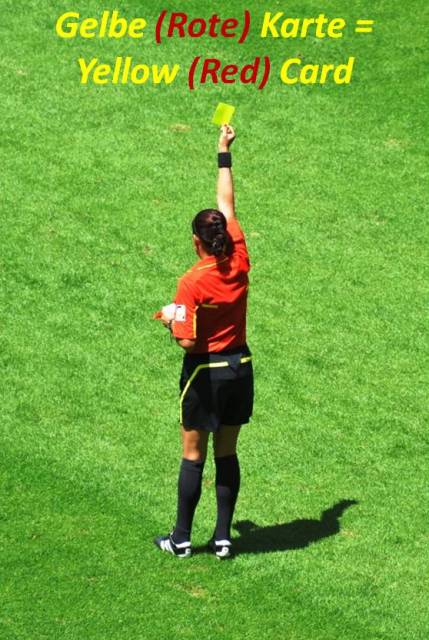
Formally known as the Schiedsrichter(in), the Referee is commonly referred to as the Schiri. As unfortunately seems to happen more and more, when the refs make a questionable call you'll hear whistling by the crowd to show their displeasure or you'll hear the announcers on TV refer to the echt Wahnsinn (true madness).
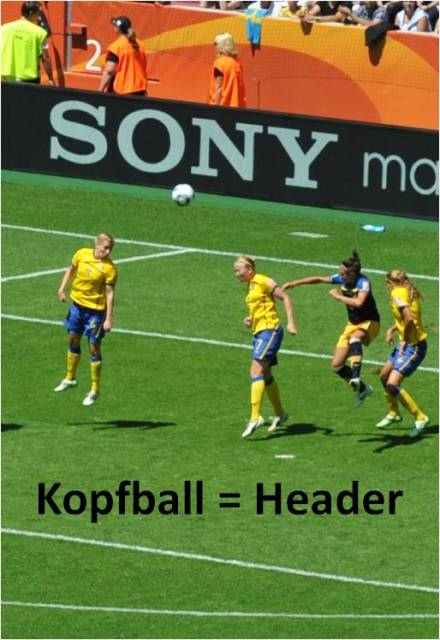
Elfmeter = Penalty Kick. Though the obvious example would be some of Hope Solo's great work in the victory over Brazil, we'll go instead with Clint Dempsey's attempt earlier this year in a Fulham vs Chelsea game. Though his shot is blocked by goalie Petr Cech, we're pretty proud to have an American playing in the Premier League.
Why Elfmeter? Literally translated at 11 Meters, it's the distance (12 yards) from goal.
After the Verlängerung (Overtime), we have the Elfmeterschießen (Penalty Shootout) which brings the Goalie center stage:
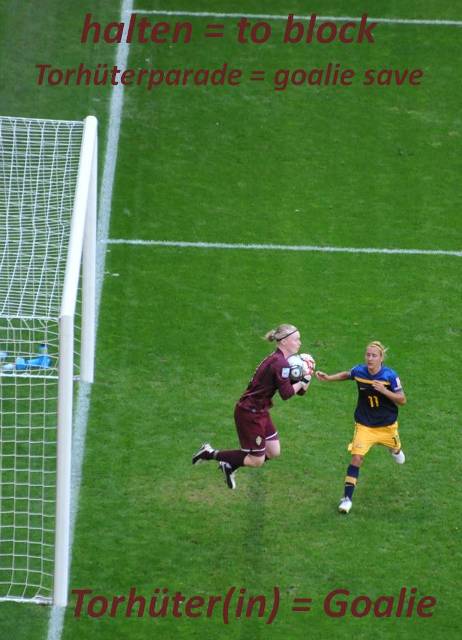
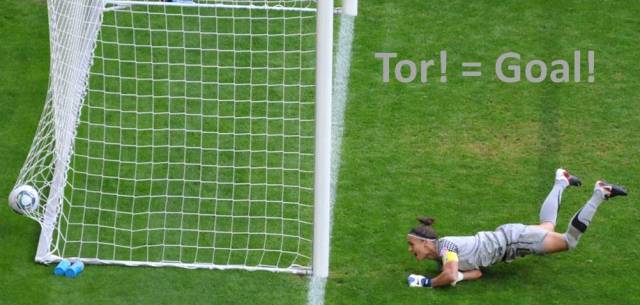
However, you definitely do NOT want to score an Eigentor, or Own Goal!
Traumtor = Dream Goal. There are a variety of examples to illustrate this one, but I'll go with something recent and something patriotic: Heather O'Reilly's goal against Colombia in the Group Stage. Also a great example of a Distanzschuss (Distance Shot):

And what is this whole thing called?? In Germany, you'll usually just hear "WM" (pronounced "vey-em", of course!). This also applies to any world championships....alpine skiing, rugby, etc.
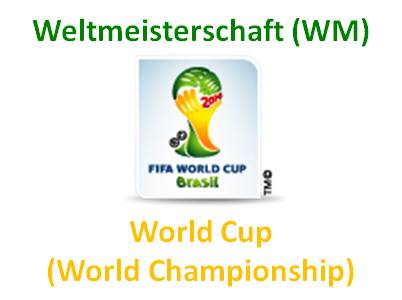
Also known informally as "die Elf," ("the Eleven"), we have the teams themselves: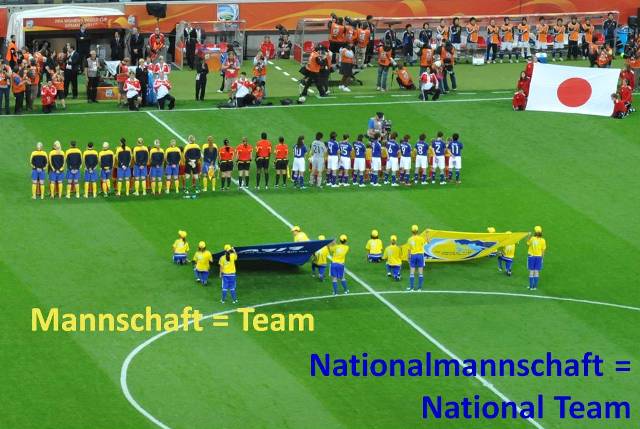
And Germany's beloved Jogi...one of the best in the world, but he often forgets about the cameras
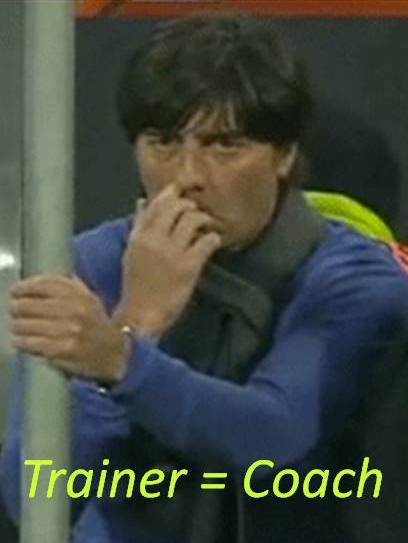
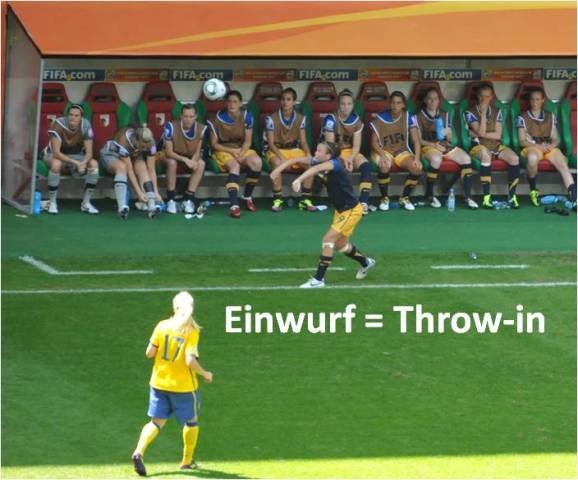
Though we can play football anywhere with a flat surface and a ball, the big games are played in a Stadion (Stadium), like Frankfurt's Commerzbank Arena here. (In German, Stadium is a completely different word). A stadium full of Zuschauer (Fans/Spectators).
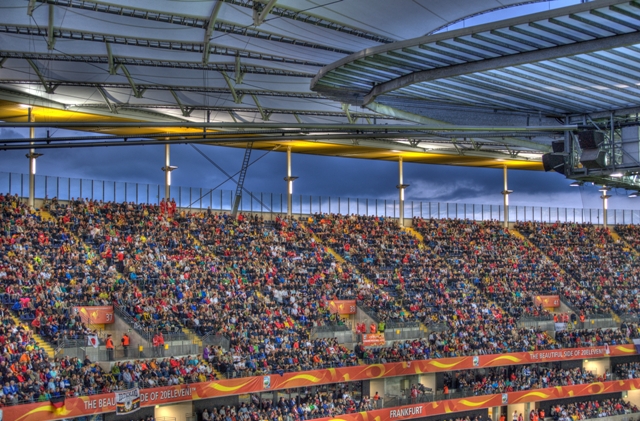
Schauspieler(in) des Jahres - Actor(actress) of the Year - This one we'll dedicate to Erika of Brazil, who puts even Cristiano Ronaldo and the Italian national team to shame:
In a game with so many Verletzungen (Injuries) - be they fake or real - we'll end up with a few minutes of Nachspielzeit (Extra Time / Injury Time). It's in this extra time that both the US 2010 and 2011 National Teams made their fabled die pefekte Come-Back Gesichte (the perfect Comeback Story).
A Foul (Foul) often can lead to a free kick, against which the most common defensive strategy is mauern (to build a wall):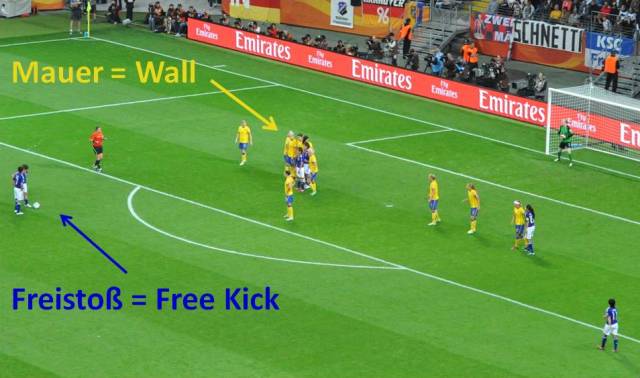
On the more technical side we have one that sounds almost the same but is spelled quite differently...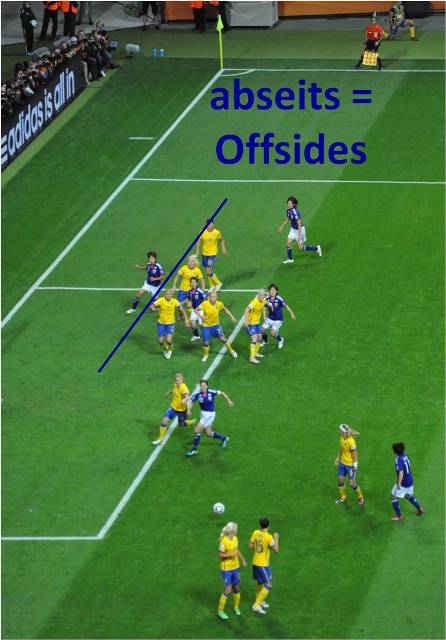
Not to be confused with Abschlag, where the goalie uses his/her hands to throw, punt, or drop-kick the ball (and must do so within 6 seconds), North Korea's goalie shows us her skills: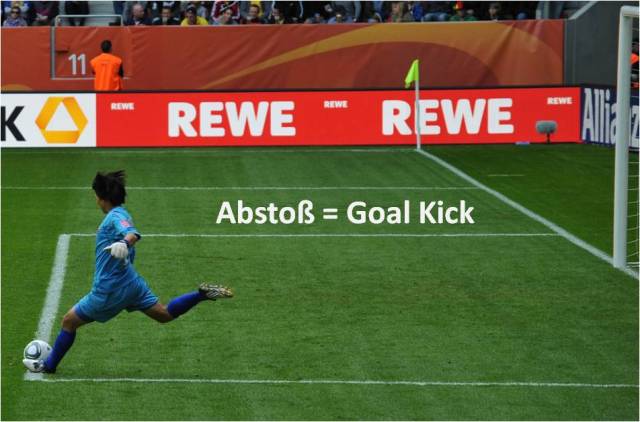
Despite rooting for Japan against Sweden last week, we'll be cheering for Team USA tonight. Will American tenacity take us through to victory, or will Japan complete its fairy tale march to a first world championship?
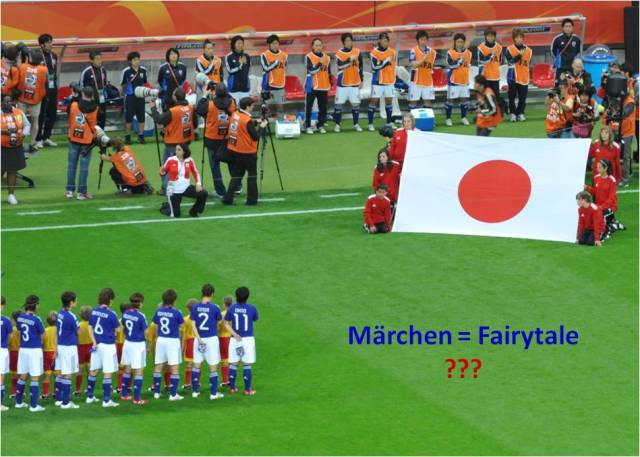
 Frau A ...
Frau A ...  Post a Comment
Post a Comment  Germany & German Culture,
Germany & German Culture,  Sports tagged
Sports tagged  German language,
German language,  football,
football,  soccer ...
soccer ...  Print Article
Print Article  Email Article
Email Article 



